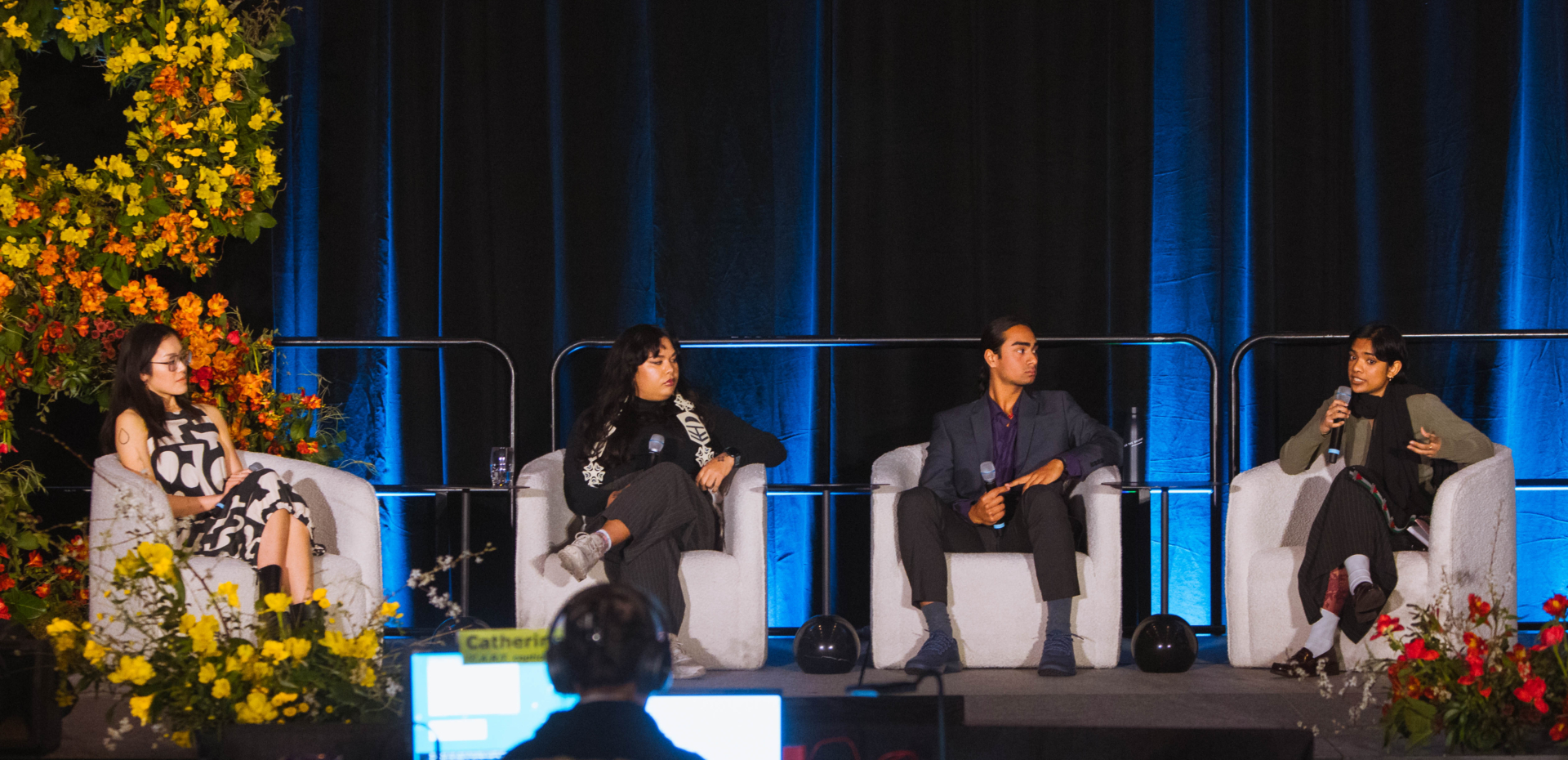Frontline Advocates Call on B Corps to Partner on Climate Justice
September 25, 2024
Get Resources and Guidance for Trust-Based, Reciprocal Partnerships with Grassroots Communities
From large, organized events like Climate Week NYC to local meetings of community organizations, frontline and grassroots communities are leading the charge for climate justice and climate action. As they power campaigns for justice-oriented policy and develop new ways of living reciprocity with land and water, they also call on businesses to eliminate extractive practices and take action to help protect the planet’s future.
For businesses, these changes can involve uncomfortable, challenging work. The reality of the challenges and the necessity for action came into focus during the “Youth at the Forefront” session at Champions Retreat 2024, a gathering of the U.S. and Canadian Certified B Corporation community in March 2024 in Vancouver. Moderator Jacqueline Lee Tam of the Climate Justice Organizing HUB introduced the session with a call for B Corps to take the next step in their journey toward climate justice. “It’s an invitation to lean into discomfort, to learn something new, to call into question your old ways of thinking and understanding things,” she said.
Tam is a co-creator of the Principles for Partnership with Frontline Communities, a business resource for climate justice developed with B Lab U.S. & Canada. “The principles aim to guide B Corp leaders on understanding how they can build trust-based, reciprocal, and long-lasting partnerships with frontline and grassroots communities,” she said. “We know that we need to come together for our collective survival and liberation. But how do we do that across differences?”

Janelle Lapointe and Bodhi Patil listen as Naisha Khan speaks during the “Youth at the Forefront” session at B Corp Champions Retreat 2024 in Vancouver, hosted by B Lab U.S. & Canada. (Photos by Setsail Marketing)
Tam guided a Champions Retreat mainstage conversation with climate advocates who are speaking up for the Earth’s natural resources, their generation, and diverse communities:
- Janelle Lapointe, Public Engagement and Mobilization Co-Lead at the David Suzuki Foundation
- Bodhi Patil, Founder and CEO of InnerLight
- Naisha Khan, Co-Founder of Climate Recentered
They called on B Corps to step forward as equitable partners and allies in the climate justice movement and help end transactional and harmful business practices. The excerpts that follow provide highlights and resources from the conversation.
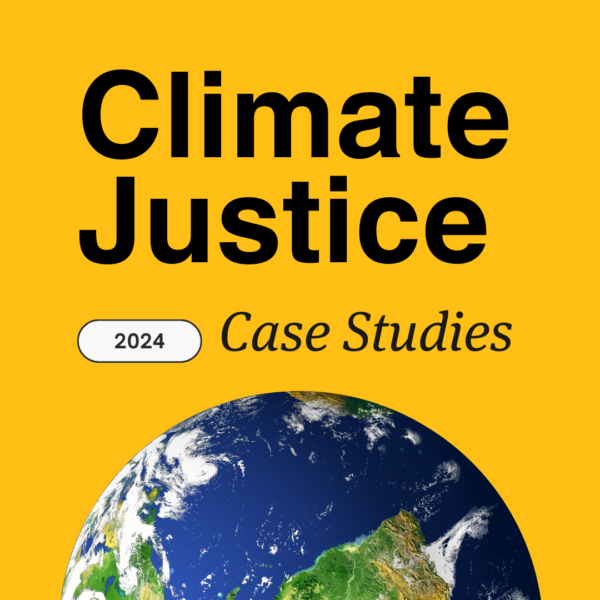
Climate Justice Case Studies
Certified B Corporations are incorporating justice in their climate action with services and products designed for positive social and environmental impact. This set of B Corp climate justice case studies produced by B Lab U.S. & Canada and B Corp Measure Meant studies highlights examples and concepts to inspire other businesses.
Reimagining Relationships to Forge Climate Justice Partnerships
Janelle Lapointe’s homeland in the northern interior of British Columbia is known for its picturesque mountains and forests. Since European colonizers set down roots in the 19th century, that natural, rugged beauty has been used for extractive forestry, mining, and fossil fuel operations.
Building on her appreciation for the land and her heritage as a member of the Stellat’en First Nation, Caribou Clan, Lapointe seeks climate justice solutions rooted in community through her work with the David Suzuki Foundation and with Common Horizon. While those solutions often occur on the local level, they are a step in systemic changes needed to address global challenges such as the climate crisis and income inequity. “People are starting to wake up to the realities of these emerging crises and the systems that are at play that got us here,” Lapointe said. “My question is: Why are we committed to dismantling the systems? Why do we want to do better?”
She encouraged the audience to consider — as individuals and members of the B Corp community — the underlying reasons to pursue a more just future. “Sometimes the systems that we are a part of that are causing so much harm and suffering in this world, they’re unrelenting. And when we’re not being unrelenting back, a force for good back, it’s so easy to fall into the norms of our systems,” she said.
Lapointe called on B Corps to go beyond good intentions that may help absolve their guilt or make them feel better. Instead, she encouraged them to develop relationships with Indigenous people and other frontline community members. “I want us to lean into this discomfort,” she said. “Start making those reciprocal relationships. Show up in the community. Introduce yourselves to (Indigenous) leaders … they are the only people on this continent who have been able to survive on these lands sustainably.”
It’s also important to realize that time is available to do this work, Lapointe said — a concept that runs counter to the urgency and scarcity often employed to create and reinforce systems of oppression. “Just because the climate crisis is here now doesn’t mean it’s time to panic. We come from a long legacy of ancestors that survived to get us here. We come from a long legacy of movements for change,” she said. “We have time and more than enough resources. Make time for it and room for it.”
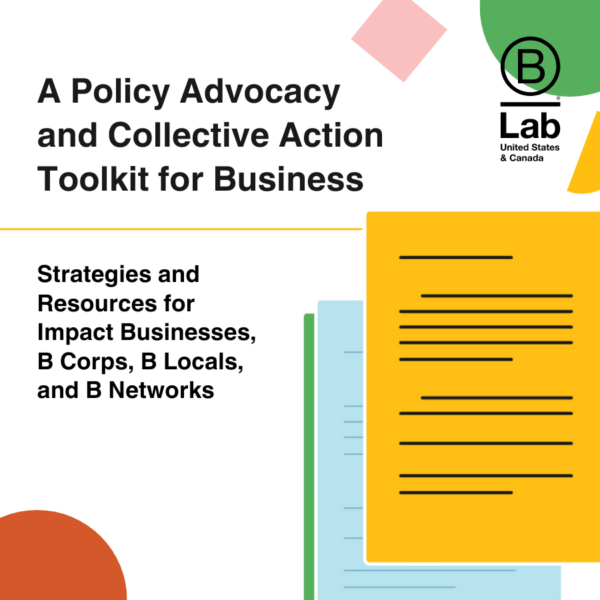
A Policy Advocacy and Collective Action Toolkit
B Lab U.S. & Canada developed this downloadable guide to support businesses in their advocacy and collective action work. Download the guide for resources, examples, and other action-oriented information.
Calls for Business to Support Indigenous Wisdom and Decolonize Business Practices
At InnerLight, Founder and CEO Bodhi Patil works with young people around the world to protect the ocean and high seas. “Ocean health is inextricably linked to human health,” he said. “Everything upstream flows downstream. The ocean connects us all.”
It’s crucial for businesses to prioritize the natural world and frontline communities and learn from their resilience, Patil said. “We have to make sure that the voice of nature, that the voice of the ocean, that Indigenous peoples, that traditional stewards are represented within C-suites and executive boards of companies,” he said. “There’s so much we can learn from nature when we actually look and channel her in each and every one of ourselves.”
Patil said business leaders must seek and listen to wisdom from the past and hopes for the future to develop effective solutions for ocean health and climate justice. That means providing resources, financing, and support for ideas from Indigenous people, who have been traditional stewards of nature, and members of Gen Z, who make up 30% of the global population. “We learn a really important lesson around resilience, around the ability to survive through very traumatic events and come out even stronger,” he said. “And there are so many incredible innovations that B Corps can implement from young people.”
Young climate advocates also are a key component of Naisha Khan’s efforts as Co-Founder of Climate Recentered in Surrey, British Columbia. Khan works with other Black, Indigenous, and People of Color youth to connect people and incorporate joy in their advocacy for a better future.
Khan’s family is originally from Bangladesh, one of the regions most affected by the climate crisis. There and elsewhere, frontline and grassroots communities advocating for climate justice seek a shift to degrowth — an economic framework that respects Earth’s limits. “Business cannot continue as normal,” she said. “Decolonization is a practice, and it involves everything that we do.”
She used the shirt on her back as an example of the wide-ranging social and environmental impacts and ripple effects of current systems. “I think a lot about the fibers of this sweater and the fact that I bought it here,” Khan said. “And how me and this sweater are both the byproducts of colonialism, of how our fibers are intertwined with the story of capitalism and extraction and power imbalances.”
Khan said business leaders who share a desire to help create a better world must recognize the power imbalances that are supported by the byproducts of colonialism and the continued oppression of frontline and Indigenous communities. “These solutions that we present are disconnected from the people who are actually solving and creating microcosms of the world that we want to try to create,” Khan said. “These people have the solutions themselves.”
Addressing the climate crisis requires practices and policies that help dismantle extractive systems of oppression supporting capitalism, she said. “We cannot business plan ourselves out of the climate crisis,” Khan said. “Challenge your idea of comfort. Challenge your idea of a better world. Because comfort is not where growth happens.”
Watch the full session: Youth at the Forefront
-
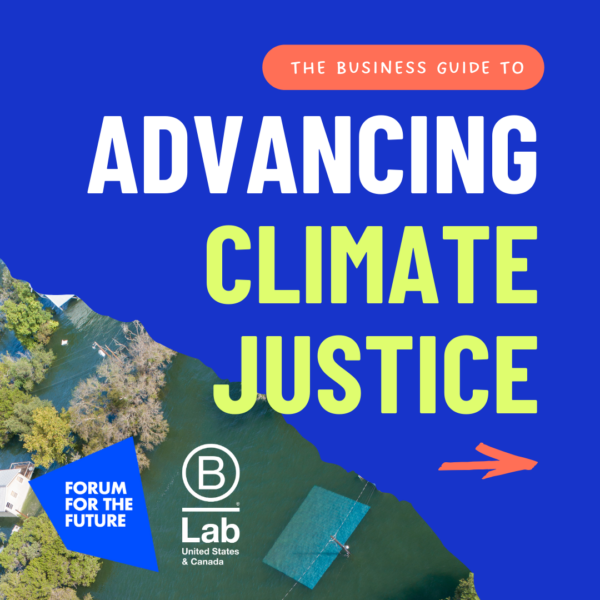
-
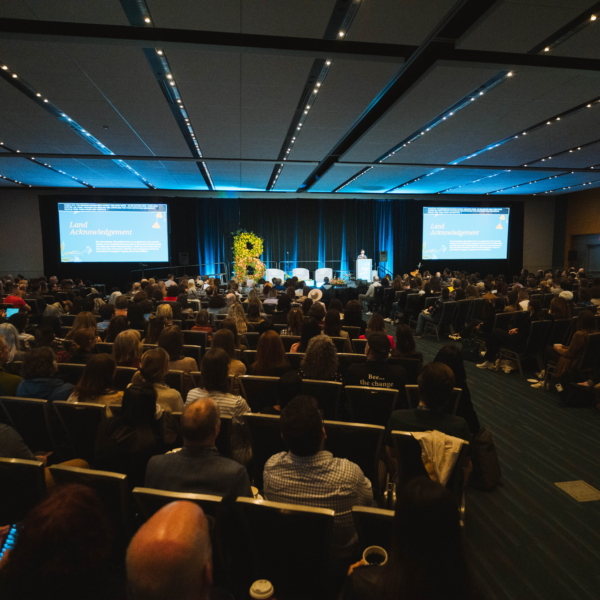
Champions Retreat
Calls for B Corp Collective Action: Takeaways from Champions Retreat 2024
Read More -
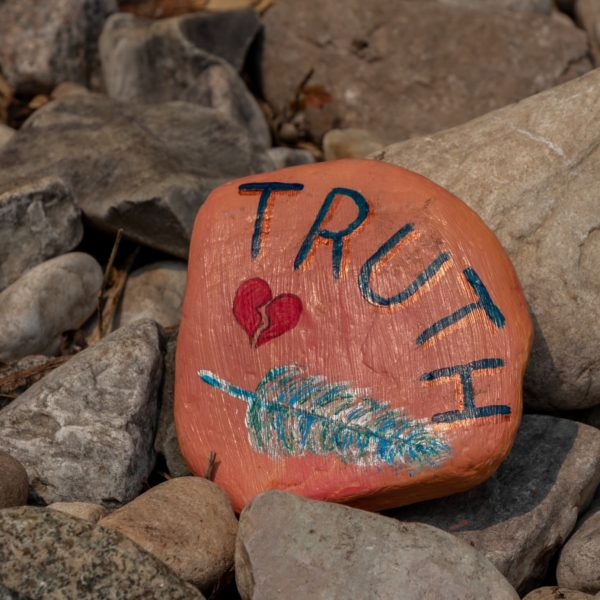
-
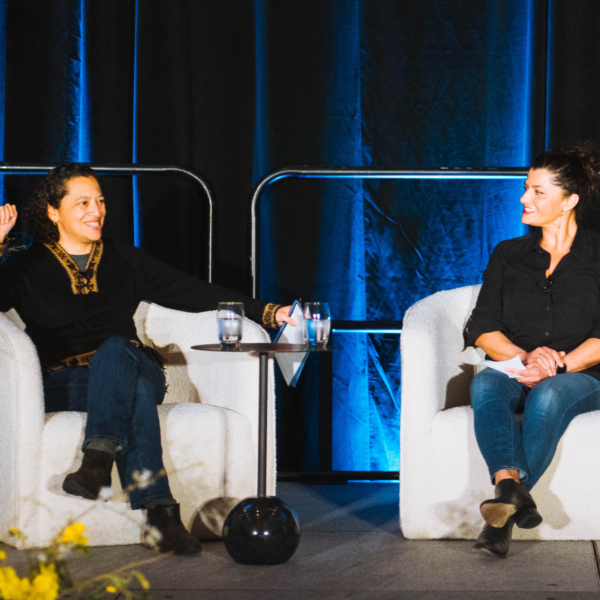
Sign Up for our B The Change Newsletter
Read stories on the B Corp Movement and people using business as a force for good. The B The Change Newsletter is sent weekly.
